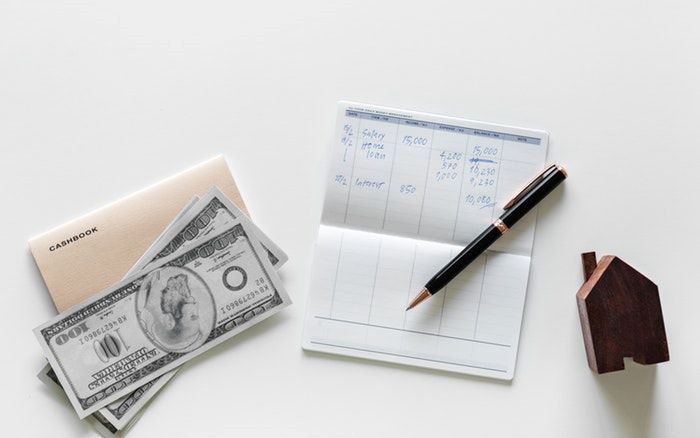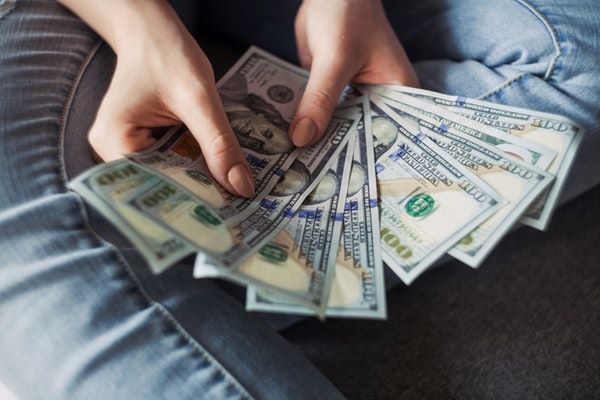
Saving your money is a wise and fiscally responsible thing to do. But instead of just hiding money under a mattress, people should consider a savings account. That may lead some to ask, "What is a savings account?" The answer is worth knowing.
So, what is a savings account, and why should you have one? The personal finance website NerdWallet defines a savings account as "a place where you can store cash securely while you earn interest on your money." It is not only a safe space for your cash, but it is a way to increase that amount by just keeping it there.
These days, there are so many ways to spend money. But there are just a few ways to save it; and even fewer ways that make more sense that a savings account. Banks aren't the only ones offering savings accounts, either. Credit unions and credit card companies are offering savings accounts too.
What Is a Savings Account? What You Should Know
The Good
The Bad
Why You Need a Savings Account
Advantage Credit Counseling Service says about 26 percent of American adults do not have any savings to fall back on for emergencies. More than 36 percent have not started saving for retirement.
That's probably the best reason for a savings account: the future. You don't know every major expense that's coming; an urgent problem may flare up with little warning. Car trouble. Health issues. Appliances or home repairs. Any of these problems, or a major catastrophe such as a fire, would make a huge dent in the finances of even the most fiscally responsible person. Having money set aside eases some unforeseen burdens and helps you avoid debt after those troubles are in the past.
It also helps with future plans. Checking accounts should be used for regular daily expenses, while money from savings accounts can be used for big purchases, education or vacations. Enough money in savings means less debt and no loans.
Money from a savings account also helps if you come across a possible profitable opportunity. Without money set aside, you may not be able to invest in that opportunity. Getting credit or a loan from a bank could be made easier if you have a healthy savings account. Such an account says a few words about discipline and stability to a bank representative, says Advantage Credit Counseling Service.
Security is a big reason for a savings account. Up to $250,000 that is deposited into a savings account is federally insured, meaning you do not lose it if the bank fails.
Before You Open a Savings Account
Bankrate.com suggests you know why you want to save money before opening a savings account. It'll help you figure out what type of savings account you'll need and the best bank or credit union for that type of account. For example, if you're saving for a particular purpose, a higher interest savings account with an online bank may be the way to go.
As mentioned earlier, shop around. Don't just stop at the big, familiar banks. Look at interest rates, any fees or restrictions, and make sure the institution is insured by either the Federal Deposit Insurance Corp. or the National Credit Union Administration. Keep any eye out for any special features, such as mobile apps or account alerts. Also, it may be a good idea to check out the financial health of the bank where you'll be opening the account.
Identifying and planning what you want from your savings account, setting "savings goals," will help encourage good financial behaviors.
Identifying and planning what you want from your savings account, setting "savings goals," will help encourage good financial behaviors. Setting financial goals forces people to watch and adjust spending habits. Short-term or loosely planned goals likely won't succeed.
Achieving those savings goals start with building a strong financial foundation. Bankrate.com says paying off any short-term debt, such as credit cards, will help.
Setting up automatic deposits will lessen the temptation to spend money as soon as it is earned. Instant gratification is a pitfall of using credit or loans to pay for things, and the same can be said with savings accounts. Having something right away isn't always wise and spending money immediately is rarely a good idea for meeting savings goals. After all, what is a savings account if you don't actually save anything?
Experts suggest keeping at least three to six months' worth of expenses in a savings account in case of emergency. NerdWallet says to aim for $500 to start the account and build from there.
Multiple Savings Accounts
While working toward any goal, tracking your progress is vital. Savings goals aren't any different. Knowing where you stand financially and how far you have to go before you reach your goal will help with planning.
One way to help keep track of your progress is to have more than one savings account. Each account can be tied to a specific goal; such as an account for vacation expenses or one where the money will be used to pay for education. Organizing your savings this way will help you achieve your goals better than just having one large account. You can also prioritize your goals and give the more important ones your attention.
Knowing where you stand financially and how far you have to go before you reach your goal will help with planning.
Breaking up your savings goals may help. Instead of aiming to save $300 a month, trying to save $10 a day may be an easier target to hit and maintain. Budget monthly expenses to give yourself a better idea of what you can do. If you can swing it, increase the amount you put into your savings account.
Once a goal is met, any additional money put into that account can be diverted into another savings account to help with a different goal.
Having more than one account can be useful if you're with an online bank. In fact, you could use more than one bank. Bankrate.com says it is a great way to try different banks and also makes it easier to leave one. You could move your money to the one with the higher interest. Just make sure you let any bank know if you're closing an account; otherwise it may cost you in fees.
Opening a Savings Account
Opening a savings account isn't too hard; but be sure to have all the needed documents handy. That includes items like a driver's license, Social Security number, address, email address and so on. If you are linking it to an existing checking account, have that account's number and routing number with you.
Be prepared to make the full minimum deposit, if there is one. If you don't, it could lead to a fee or closure of the account. It may also lead to a lower interest rate.
You can transfer money from an existing account to the savings account by providing the routing number and account number of the existing account. Some banks may allow for the scanning of checks or deposit by mobile app, or you can mail a check. But make sure the bank takes checks through the mail; some online banks won't take them.
Conclusion

Photo by Alexander Mils from Pexels
So, what is a savings account? It is a safe, secure and convenient way to save money that may make some extra cash and will be used in the future. Plan and know your finances, and a savings account will go a long way in helping you achieve your goals.
Financial experts generally agree that a healthy savings account can give a person peace of mind by giving them control over their situation. Having a savings account is a good way to have control over your money, while learning how to avoid letting money control you.





Leave a Reply